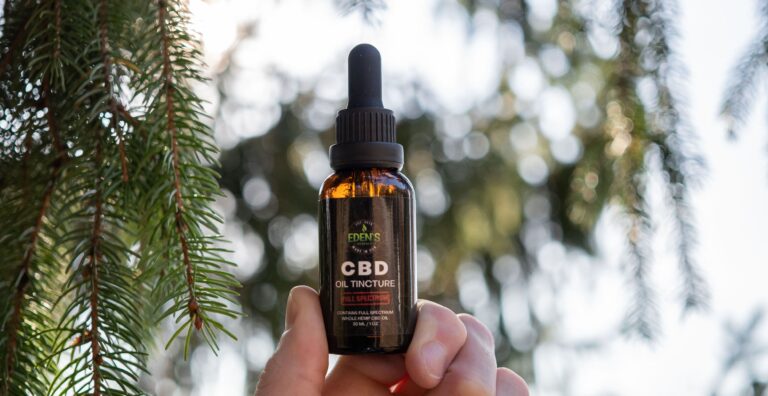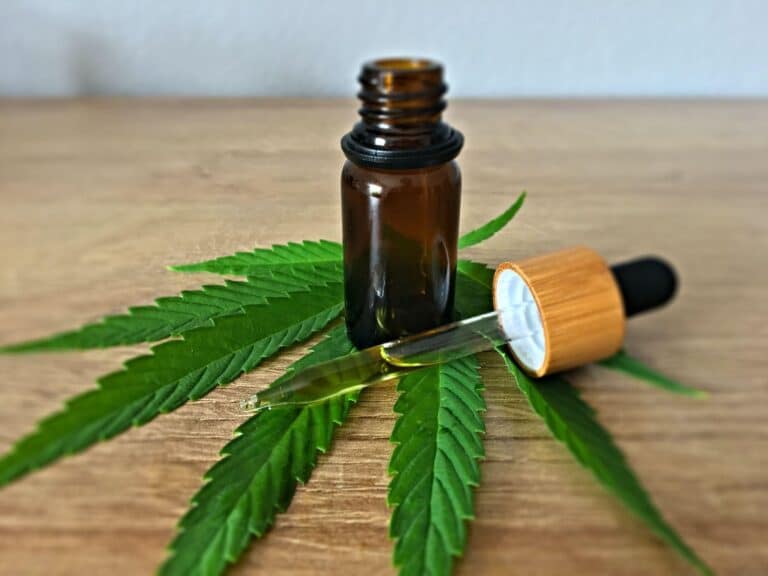Potential Role of CBD Oil in Type 1 Diabetes and Insulin Sensitivity
Anyone living with type 1 diabetes knows that controlling blood sugar is important for long-term health. While the availability of insulin has made this easier, studies are ongoing to find additional ways to help stabilize glucose levels. Some of the most recent studies have shown that CBD oil may have beneficial properties for those living with diabetes. Let’s have a look at the potential role of CBD oil in type 1 diabetes and how it affects insulin sensitivity.
What is CBD?
CBD, or cannabidiol, is a compound found in certain cannabis plants, such as hemp. Although it is similar to THC, the compound in other forms of cannabis that causes a “high” feeling, CBD has no psychoactive properties. As such, it is legal in many areas where THC products are not. CBD has gained recognition in recent years for its anti-inflammatory properties (source). Studies have shown that it may be useful in the treatment of many conditions, such as:
- Anxiety
- Chronic pain
- Depression
- Certain forms of epilepsy
- Insomnia
- Nausea, such as that suffered during chemotherapy
- Skin care and anti-aging
Ongoing studies are also looking into CBD’s potential role in helping to treat other conditions, such as Parkinson’s disease and type 1 diabetes.
The Impact of CBD Oil on Type 1 Diabetes
Studies are ongoing, but preliminary findings have shown that CBD may have a positive impact on some patients with type 1 diabetes. It is believed that CBD’s impact on inflammation may help reduce pancreatic damage and help preserve the function of residual beta cells. Current findings have shown that CBD oil may:
Reduce Hyperglycemia
In studies, mice with limited blood flow to the brain showed marked improvement in high blood sugar levels when given CBD supplementation.
Increase Insulin Production
Studies in mouse models also showed that the treated mice vs. a control group had increased insulin production and reduced insulin resistance.
Additional Benefits of CBD Oil on Diabetes
Some of the benefits of CBD for those with type 1 diabetes may not impact the condition itself, but help control some common comorbidities and complications from the disease. These can include:
Reduced Cholesterol
Studies have shown that type 1 diabetics who were treated with CBD had lowered levels of “bad” cholesterol and fat levels. This can help reduce the risk of cardiovascular disease, a common complication for those with diabetes.
Reduction in Pain and Neuropathy
Nerve damage and resulting pain and neuropathy in the extremities are common side effects of long-term diabetes. CBD oil has been shown in studies to help reduce systemic inflammation and reduce nerve damage in the hands and feet of diabetics. This can help keep pain, swelling, and neuropathy at bay.
Increased Brown Fat
Use of CBD has been shown to convert dangerous “white” fat into metabolically active “brown” fat. This helps improve the body’s response to glucose and can help regulate blood sugar levels.
Improved Stress Response
CBD may help with stress and anxiety in those with diabetes in various ways. Constant blood glucose monitoring and insulin dosing can lead to increased stress. Additionally, stress and anxiety can also make controlling blood glucose more difficult due to the release of cortisol. CBD oil may help with both of these issues, making subjects calmer and helping to control blood sugar levels better.
Lowered Blood Pressure
Some studies have shown that an initial dose of CBD oil can help reduce blood pressure. More studies are needed to determine whether ongoing supplementation can help control blood pressure levels long-term. Chronic hypertension is a common complication of diabetes, increasing the risk of cardiovascular disease.
Reduced Insomnia
Frequent sleep interruptions are common for diabetics. CBD oil may make it easier to fall asleep and get back to sleep after waking.
Ways to Take CBD
CBD extract can be purchased in several forms. Some are absorbed more quickly than others by the body. The most common forms of CBD include:
- CBD Oil: This is where CBD extract is made into a tincture by adding it to a carrier oil, such as coconut oil. Keep in mind that not all CBD oil is meant to be used orally, so check your product carefully.
- Gummies and edibles: CBD extract can be added to edible products such as gummy candy or chocolate, making it easier to consume with accurate dosing.
- Sprays: CBD may be given as a spray that you hold under your tongue.
- Capsules: CBD is also offered in pill form for those who prefer to take it that way. Pills are sometimes not absorbed as quickly by the body.
Precautions While Using CBD
While research is limited, CBD is thought to be well-tolerated by most individuals. Side effects can include nausea, irritability, and diarrhea. These may improve over time. CBD may not be advised for certain individuals. Some issues to keep in mind:
Drug Reactions
CBD may interact with other supplements and medications, both prescription and OTC. CBD can increase liver enzymes, so it should not be taken with acetaminophen and other medications that are processed by the liver.
Ketoacidosis
Those at high risk of ketoacidosis may be at increased risk when taking CBD extract. It’s important to go over any supplements you are taking with your doctor before proceeding.
Insulin Dosing
Do not discontinue insulin or any other diabetes medications without consulting your doctor. It is important to carefully monitor blood glucose levels when starting CBD to determine how your body will respond. Any adjustments in medication should be implemented under medical advisement. CBD isn’t intended to take the place of other diabetes treatments.
Kidney Function
Those with diabetic nephropathy should exercise caution when taking CBD-related products, as some studies suggest they may worsen the condition.
CBD Sourcing
CBD extracts are not regulated by the Food and Drug Administration. That means sourcing products from a reputable supplier is crucial to ensure proper dosage and ingredients. It is also important to know what type of product you are buying. CBD products with more than 0.3% THC are illegal in most states.
Types of CBD include:
- Broad Spectrum – These may contain trace compounds from multiple types of cannabis plants, but contain no THC.
- Full Spectrum – These contain trace compounds from other cannabis plants, including the potential for THC.
- CBD Isolates – These are pure CBD with no other cannabis varieties included, and no THC.
Talk to your healthcare provider about CBD oil and type 1 diabetes to determine which options are right for you.








Leave a Reply